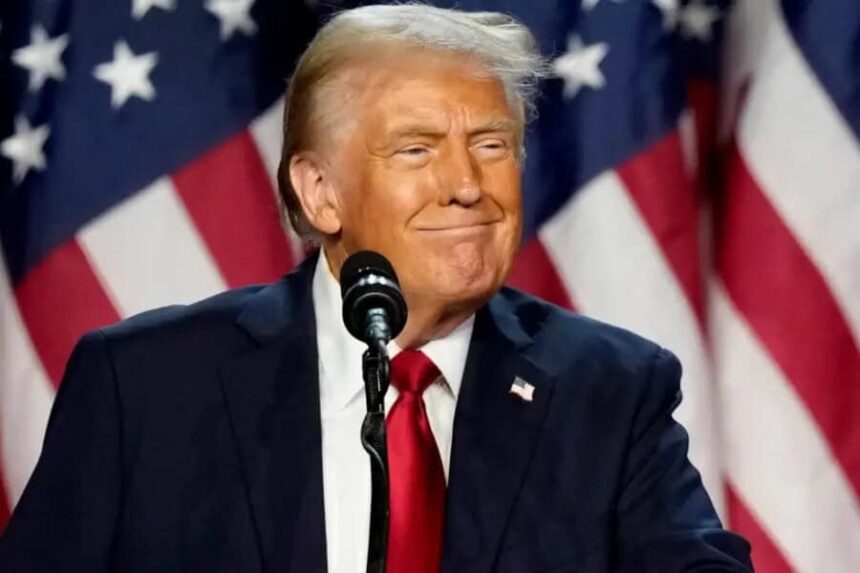The world watches Donald Trump secure his place for a second term in the White House, and leaders around the globe are responding with a mix of optimism, caution, and concern. Trump’s return to the presidency has sparked immediate reactions from allies and rivals alike, each assessing how the revived “America First” approach may reshape U.S. relations and global affairs.
In Israel, Prime Minister Benjamin Netanyahu congratulated Trump on what he called “history’s greatest comeback,” expressing optimism for stronger ties with the U.S. Netanyahu, who has faced criticism over his handling of ongoing conflicts, particularly in Gaza and Lebanon, emphasized a commitment to mutual security goals, notably the ongoing challenge posed by Iran. Observers in Israel suggest Netanyahu may expect more diplomatic and strategic freedom with Trump in office, as Biden’s administration often pressured Israel on humanitarian issues within the conflict zones.
Ukraine’s President Volodymyr Zelenskyy expressed guarded support, congratulating Trump while underscoring his hopes for continued U.S. backing in Ukraine’s fight against Russian aggression. Trump’s repeated pledges to end the war quickly have stirred apprehension in Kyiv. With significant U.S. military support at risk, Ukraine faces an uncertain future if Trump pushes for a peace deal that could entail concessions to Russia. Zelenskyy’s calls for “peace through strength” signal his preference for firm opposition to Russian advances, a stance that may soon clash with Trump’s stated goal to negotiate a swift resolution.
Hungary’s President Viktor Orbán, an early and vocal supporter of Trump, celebrated his victory as a “much-needed win for the world.” Orbán has long held a controversial position within the European Union, aligning himself with Trump on various populist stances, including anti-immigration policies. Known for his close ties with Russian President Vladimir Putin, Orbán views Trump’s win as an opportunity to foster closer ties between the U.S. and Hungary, particularly on issues that challenge EU norms and sanctions policies.
In Russia, officials were less forthcoming, with Kremlin spokesperson Dmitry Peskov remarking on America’s status as an “unfriendly country.” Despite Trump’s prior interest in improving relations with Moscow, Russian politicians remain skeptical. Leonid Slutsky, head of the foreign affairs committee in Russia’s parliament, suggested Trump’s win could “open the door to a more constructive approach” toward Ukraine, hinting at Russia’s hope that a U.S. pullback from Ukraine might shift the conflict’s dynamics. Yet, with skepticism lingering from Trump’s first term, Russia’s cautious response underscores the persistent friction between the two nations.
China’s response was notably measured. China’s Foreign Ministry spokesperson expressed respect for the American people’s choice, emphasizing a “win-win” philosophy for U.S.-China relations. However, Beijing remains wary, as Trump has long targeted China as an economic adversary, advocating for high tariffs on Chinese imports and restricting China’s access to American technology. China’s leadership will closely watch for any return of these policies, especially as tensions rise over Taiwan’s status and U.S. support for the island’s defense.
In Asia, Japan and South Korea both issued messages of congratulations while stressing the importance of continued alliances. South Korean President Yoon Suk Yeol welcomed Trump’s leadership, reinforcing the bond between the two nations amid North Korea’s nuclear ambitions. Japan’s government similarly called the alliance with the U.S. the linchpin of its security policy, reflecting shared concerns over regional stability.
Trump’s return to power also brings questions for NATO. Former Dutch Prime Minister Mark Rutte, now NATO’s secretary general, emphasized the Alliance’s resilience and congratulated Trump, noting that the transatlantic partnership remains crucial amid escalating defense concerns in Europe. NATO allies are bracing for renewed pressure from Trump on member countries to increase defense spending. With the ongoing war in Ukraine and Europe’s heightened focus on security, NATO leaders may soon find themselves balancing Trump’s demands with the unity required to address regional threats.
From Europe to the Middle East, responses to Trump’s re-election reflect a hopeful and uncertain world about his leadership’s implications. As international leaders recalibrate their strategies in response, they face a new phase of U.S. foreign policy where familiar tensions, alliances, and rivalries will likely play out on an even grander stage.




